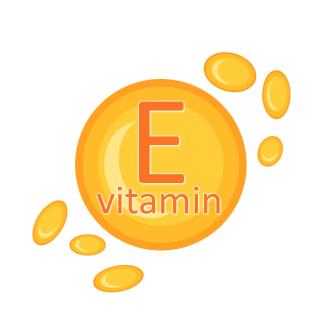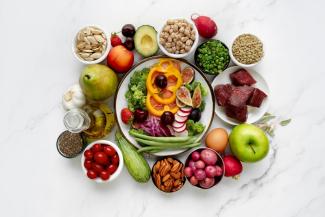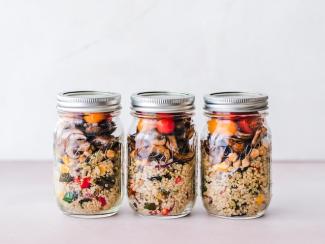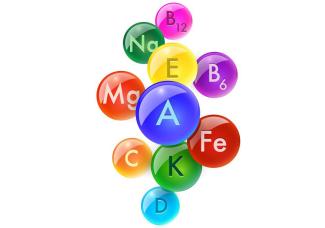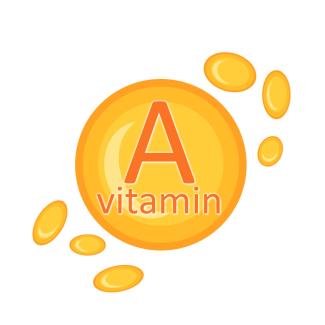
Vitamin A is a fat-soluble vitamin that plays a crucial role in maintaining various aspects of human health. Here are some of the key reasons why we need vitamin A:
- Vision: Vitamin A is essential for good vision. It is a component of a pigment called rhodopsin found in the retina of the eye, which is necessary for low-light and color vision. Deficiency of vitamin A can lead to night blindness and other vision problems.
- Immune System Support: Vitamin A plays a role in maintaining a healthy immune system. It helps the body fight off infections and supports the function of white blood cells.
- Skin Health: Vitamin A is important for maintaining healthy skin. It promotes the production of skin cells and mucous membranes, helping to keep the skin soft and supple. It is often used topically in various skincare products.
- Growth and Development: Vitamin A is essential for the growth and development of the human body. It is especially critical for the growth of bones and teeth.
- Reproduction: Vitamin A is important for the reproductive system. It is necessary for the development of sperm and the normal functioning of the female reproductive system during pregnancy and lactation.
- Antioxidant Properties: Vitamin A acts as an antioxidant, helping to combat oxidative stress and reduce the risk of chronic diseases. It can help protect cells from damage caused by free radicals.
- Maintenance of Tissues: Vitamin A supports the maintenance and repair of various tissues in the body, including the lining of the respiratory, digestive, and urinary tracts.
Vitamin A can be obtained from various dietary sources, including:
- Retinoids: Found in animal products like liver, fish, and dairy.
- Carotenoids: Found in colorful fruits and vegetables, such as carrots, sweet potatoes, spinach, and kale. Beta-carotene is a common carotenoid that the body can convert into active vitamin A.
It's important to maintain an adequate but not excessive intake of vitamin A, as excessive vitamin A intake from supplements can lead to toxicity, resulting in various health issues. The recommended daily intake of vitamin A varies by age and gender, so it's a good idea to consult with a healthcare professional for personalized dietary recommendations.
The best foods with high vitamin A content
Vitamin A is available in two forms in food: retinoids (preformed vitamin A) and carotenoids (provitamin A). Here are some foods that are high in vitamin A content:
- Liver: Liver from various animals, such as beef, chicken, and fish, is one of the richest sources of retinol, a type of preformed vitamin A.
- Sweet Potatoes: Sweet potatoes are packed with beta-carotene, a carotenoid that your body can convert into vitamin A.
- Carrots: Carrots are well-known for their high beta-carotene content and are an excellent source of vitamin A.
- Pumpkin: Pumpkin is another orange vegetable rich in beta-carotene and is great for boosting your vitamin A intake.
- Butternut Squash: Like pumpkin, butternut squash is high in beta-carotene and provides a healthy dose of vitamin A.
- Spinach: Leafy greens like spinach contain significant amounts of both beta-carotene and other carotenoids, making them excellent choices for vitamin A.
- Kale: Kale is another leafy green that is high in carotenoids and provides a good source of vitamin A.
- Mangoes: Mangoes are a delicious fruit rich in beta-carotene, providing a sweet way to increase your vitamin A intake.
- Cantaloupe: This orange-fleshed melon is a good source of beta-carotene and vitamin A.
- Red Bell Peppers: Red bell peppers contain beta-carotene and are a great source of vitamin A, as well as vitamin C.
- Apricots: Apricots are another fruit that offers a healthy dose of beta-carotene and vitamin A.
- Cod Liver Oil: This oil is one of the richest sources of preformed vitamin A and is available as a dietary supplement.
- Eggs: Eggs contain vitamin A, with the highest concentration found in the yolks.
- Dairy Products: Milk, cheese, and yogurt contain retinol, a preformed type of vitamin A.
- Broccoli: Broccoli contains some beta-carotene and is a healthy vegetable option for vitamin A.
Including a variety of these foods in your diet can help you meet your daily vitamin A needs. Keep in mind that consuming vitamin A from whole foods is generally safe, but excessive intake of vitamin A supplements, especially in the form of retinoids, should be done under the guidance of a healthcare professional, as excessive intake can lead to toxicity.

